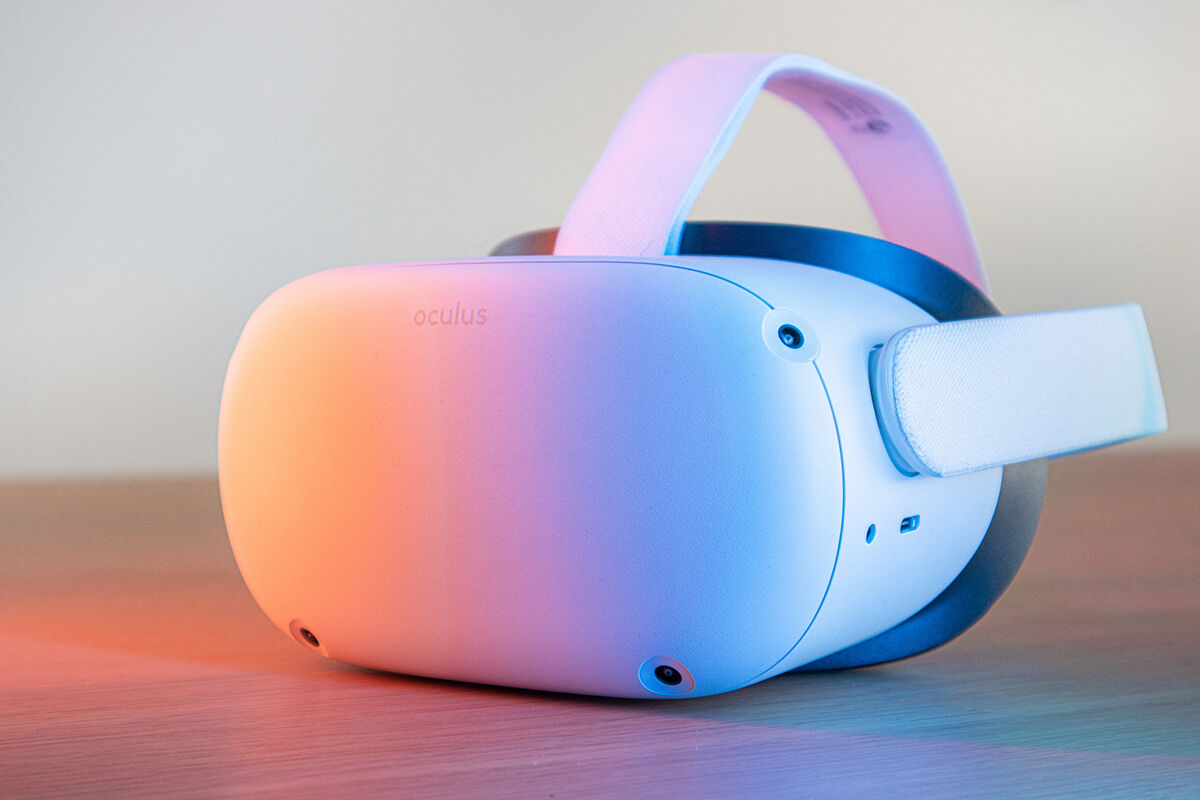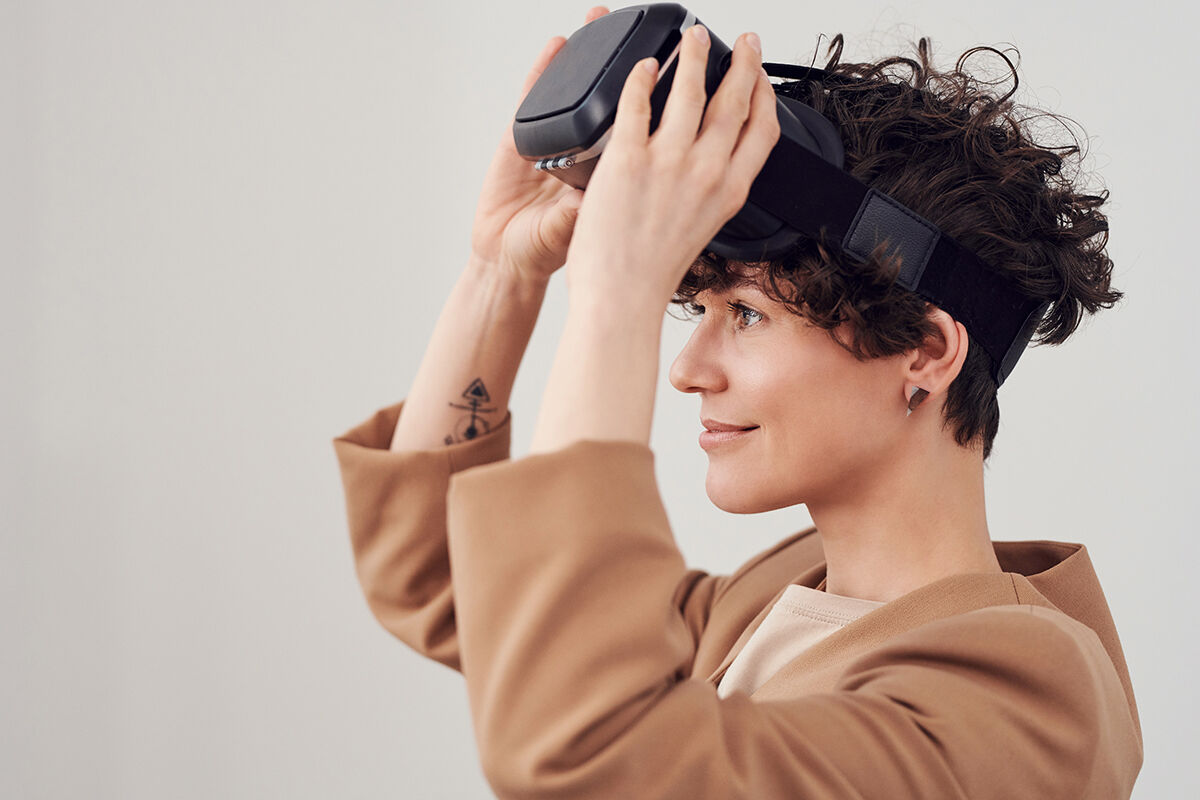At the beginning of February, Meta shared the first quarterly earnings report after it switched its attention to the metaverse: the all-in-one inclusive online reality world that Meta is heavily investing in.
Since then, Meta’s shares have dropped by 20%, which in any other company would be a big problem, but since it’s Meta – actually, it’s a big problem for Meta too.
20% doesn’t seem like a lot.
For Meta, it’s $240BN. Overnight. As investors realised – and saw – what the Metaverse really looked like.
Here’s why.

What’s the metaverse?
Zuckerberg says the metaverse is the future. In his own words: “the metaverse is the next evolution of social connection.” It’s concerts you can attend anywhere in a virtual space. It’s avatars you can customise to look just like you. It’s a world that builds itself around giving you better experiences.
It’s a massive multiplayer online roleplaying game, and we’ve had the technology to make those since 1991, but Zuckerberg wants to go a step further.
Zuckerberg wants it to be hyperrealistic.

But isn’t the metaverse supposed to be really high-tech?
Meta wants to push for virtual reality.
There’s currently a couple of problems with delivering that promise:
- Virtual reality tech is expensive. The cheapest one, the Oculus Go, was $249 dollars in 2019; the prices have gone up since then due to a number of factors such as the global chip shortage and manufacturing issues.
- Virtual reality tech is not viable for everyone. Think of the people who are going to be the primary audience for this. Now think of where they live. How many 16 – 40 years olds do you know with both the money and the space to drop on virtual reality technology that takes up half a room?
- Virtual reality tech has to be immersive to deliver the promises. Facebook’s latest Superbowl advert showed that the avatars they could map with today’s technology are basically just floating torsos. The reason for this is that the technology hasn’t come far enough, and been made affordable enough, to map full-body movements – which kind of sets Meta’s ‘be yourself, but virtually’ goals back a few notches in immersion.
The metaverse is high-tech.
But it’s high-tech in ways that needs hardware the average person won’t have access to yet.
A full-scale immersive environment that tracks your full body – similar to the way they track movements in multi-million dollar triple A games – is expensive. It’s not tech that can just become widely available overnight.

What about their users?
Facebook’s user-base is aging, and they’re finding it hard to appeal to younger users. Tiktok has taken a chunk out of their primary users, and as Facebook continues to get a reputation for being the social media riddled with anti-vaxxers and propaganda, it’s struggling to maintain the higher numbers it used to have.
Even if the metaverse brings in a younger audience, what Facebook offers is limited: playing games, watching VR videos, attending meetings, none of which have the refinement that you can get from companies that specialise in VR.

So, Facebook’s metaverse is a failure?
Meta’s take on the metaverse is an idea that has yet to reach its full potential.
But this version of the metaverse will likely not be the one that endures.
And much of it is down to the grip that Mark Zuckerberg has on Meta.
Zuckerberg is a visionary. The original Meta, pre-rebrand, created the term unicorn company, and drove it to higher, better heights. His idea for a social network changed the very basis of the internet into something so completely different that it defined Web 2.0. Good or bad, it wouldn’t have happened without Mark Zuckerberg.
However, Mark Zuckerberg is banking a lot that the metaverse is something Meta’s primary audience – most of which are the older generation and the very, very young – wants. And whatever Zuckerberg identifies as his vision, Zuckerberg pushes Meta to do – whether or not it’s in line with the userbase.
This isn’t a bad thing. Part of being a visionary is learning what rules to break.
But Meta-under-Zuckerberg is breaking those rules in a way that makes it difficult for the company to generate any goodwill. Meta’s past data scandals and reputation have earmarked it as the social media you shouldn’t trust, and its present is riddled with problems with its algorithm and the slow recognition by the world at large that it has bought most of its major competitors.
Just based on technology, the metaverse isn’t quite ready for Facebook’s vision.
And from a business perspective, Facebook isn’t ready for the metaverse.
But it is ready for growth.
However, that growth could come at the cost of Mark Zuckerberg.
As we’ve seen from Dorsey and Twitter, that’s not always the end of an era.

Can Facebook create a successful metaverse?
Meta has the money, and the people, to create a better attempt at the metaverse than some of its other competitors, and it can still create a successful metaverse – but for it to reach, and be relatable, to a much wider group of people, it has to really think about what its metaverse needs to be.
And it has to see how it can keep the people who are on-board for the metaverse interested as they figure out how to actually make the metaverse viable and true to its vision.

What’s the lesson to take away from this?
If you’re creating a product that your audience isn’t going to use, you need to make sure that someone will.
Meta is banking that there are people who are so invested in VR social media that they will shell out upwards of $250 to chat to avatars of their friends, attend concerts, play basic games, and see art shows in virtual reality, rather than doing the same thing in real life.
As a theory, it has merit. But Meta also needs to keep in mind that the tech to make this happen is yet years away, and to keep pushing and building their primary product and addressing the concerns that its main user base has: the allegations of abuse, the problematic algorithm, and the idea that Meta is selling your data to the highest bidder.

However: The Case for Metaverse
There’s a bright side.
Metaverse is still very, very new, and so is the technology to make it. Hyperrealistic 3D virtual worlds might not be on the cards for next year, but it doesn’t mean they never will be – and as happens with most big corporations, Meta’s R&D investment is going to pay out. Whether it’s in the way that will benefit the metaverse or not, it’s too early to tell.
But the metaverse is happening, and eventually, it might even be something good: a place where you experience anything.
Its merit, and whether or not that’s enough to tide over the share dip, is still undetermined.
It’s going to be fun watching it develop.




